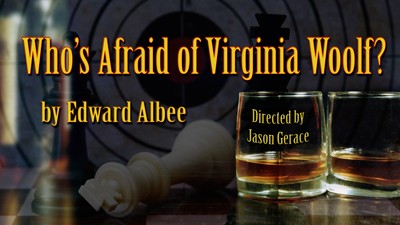
Before entering the house of Red Twist Theatre to see its current production of Edward Albee’s “Who’s Afraid of Virginia Woolf?”, an usher said, “Welcome to George and Martha’s place.” Once inside, I found that the house had indeed been turned into a large 1960’s living-room with seats set around the rectangular performance area. The scenic and properties design (Eric Broadwater and Josh Hurley) were detailed and convincing, and added a great deal of period glamour to the set (Jeff Gamlin). In conjunction with Clare McKellaston’s excellent costume design, these technical aspects maintained a nostalgic elegance throughout the play which was constantly offset by the emotionally violent interaction between the characters, and the appropriately dark lighting design (Daniel Friedman), producing a highly disturbing but very satisfying effect.
As the middle-aged George (Brian Parry) and Martha (Jacqueline Grandt) enter, it becomes clear that this is a married couple who fight so often that their manner of speaking, topics of disagreement, and tactics of provocation are by now automatic and that both characters have become immune to each other’s antics which is particularly unfortunate as they use emotional violence against each other as leisure and sport. Perhaps this is why Martha has invited Nick (Stephen Cafula JR.): a new, twenty-something, biology professor and his wife, Honey (Elizabeth Argus), back for drinks after a party. For by now, George and Martha need an audience to make the mechanics of their marital disharmony feel fresh. Even more darkly, Martha seems to deliberately have selected this particular couple so that they can have young, married victims to initiate into their own horrific marital relations, rituals, and games. 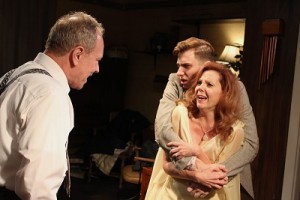
Early on George, a historian, engages Nick on biomedical ethical questions surrounding his research area, chromosomal genetic engineering, arguing that it will inevitably descend into Nazi-Era eugenics. This is a bit of a red-herring, for the debate will soon be discontinued, and George and Martha will turn Nick into a pawn in their own dysfunctional marriage as they tell outrageous secrets and libels about themselves and each other until it is utterly unclear if anything being said is true. However, chromosomal engineering is not totally unrelated to the play as a whole. (By the end, it will become clear that it is something that all the other three characters have, or at least may have, in the loosest manner of speaking, engaged in.)
As the play continues, Nick and Honey become drunk. While Honey succumbs to the alcohol quickly, Nick holds up better, never becoming unconscious, just injudicious, indiscreet, and belligerent, making him more vulnerable to the “game” George dubs “Get the Guests.” While she curls up in the bathroom, vomiting, and becomes unconscious, Nick reveals the details of his own marriage to George before being sexually solicited by Martha. It seems that George and Martha are as accustomed to and unaffected by alcohol as they are by each other’s constant, painful, and humiliating barbs, and are thus able to use constant imbibing as a weapon against their guests: Nick and Honey.
Argus as Honey doesn’t appear on set very frequently, and when she does, it is often in a drunken stupor often laughing in which she laughs at jokes at her own expense. Still, she executes the part faithfully, frequently getting uncomfortable laughter from the audience. By contrast, Brian Parry is full of intelligence and cerebral energy as George, but he fuses these with the attitude of a man who has grown tired of speaking to his wife for thirty years in his gestures and delivery, however fluently and energetically he speaks, spars, and move. Jacqueline Grandt is tough, intelligent, and brash as Martha, but there is also a touch of hurt and fear in her character from the beginning that she successfully pours out in the play’s last scene. While Parry and Grandt’s character’s attitudes and performances were stable and consistent until the play’s final revelation about their adult son (after which everyone’s attitude and demeanor towards each other, and outlook on prior exchanges, shifts), Stephen Cefalu’s Nick is not.
Indeed, his performance is the most interesting, and perhaps the most challenging as, at least in this production directed by Jason Gerrace, the character of Nick changes dramatically throughout the play, and not just from an increasing level of intoxication. Initially, Cefalu made makes of Nick’s gestures and Nick’s manner of speaking highly affected, but this isn’t bad acting on Cefalu’s part. On the contrary, he gives the sense of a character so young that accepting a drink, protecting his wife, and reacting appropriately to the embarrassment of watching another couple’s marital dispute are roles that he is still trying to learn how to successfully execute as an adult and husband. But if Martha and George were trying to initiate him into their dark games and into adult married life, they succeeded as Nick steadily rises to the challenge and Cefalu’s gestures, reactions, and responses as Nick become more confident, self-assured, and natural with each attack. At one point, Nick even erupts into chivalrous violence (convincingly choreographed by Matthew Moynihan and executed by Cefalu), and eventually discovers the key secrets that underlies George and Martha’s marriage.
Gerrace’s interpretation of Albee’s play is extremely astute and affecting, going for the dark half of this dark comedy, focusing on the violence rather than the humor in George and Martha’s exchanges and their almost sadistic need to draw Nick and Honey in to their marital discord. His blocking underlies the theme of games by having the actors move across the stage strategically as though they were chess pieces, and gets stunning performances out of each actor. So that, whether they know the play or not, the sheer artistry with which he handles the play, in particular the final scene, is sure to shock and astound audience members. 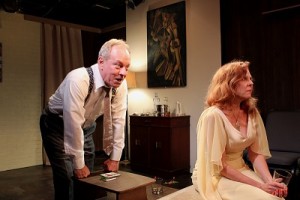
Redwist Theatre’s production of Edward Albee’s “Who’s Afraid of Virginia Woolf” runs through October 11th, 2015 at Redtwist Theatre, located at 1044 W. Bryn Mawr, Chicago IL with performances Thursday through Saturday at 7:30 pm, and Sunday performances at 3:00 pm. The play runs 2:55 minutes with two ten minute intermissions. Regular Tickets are $30 dollars for Thursdays, and $35 dollars for Friday, Saturday, and Sundays. $5 discounts are available for students and seniors. They can be purchased by calling 773-728-7529 or by visiting www.redtwist.com The theatre asks that you reserve 48 hours in advance. The theatre is located 2 Blocks West of Lake Shore Drive and 2 Blocks East of Byrn Mawr’s Red-Line El Station.
To see what others are saying, visit www.theatreinchicago.com, go to Review Round-up and click at “Who’s Afraid of Virginia Woolf ?”.

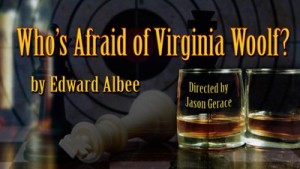




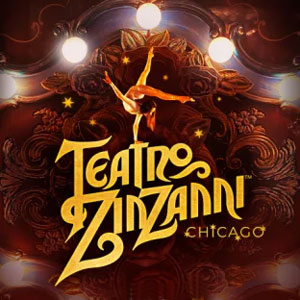
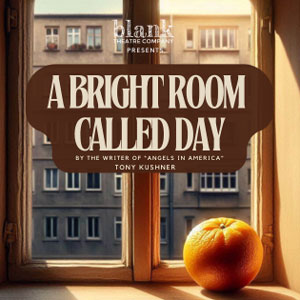
More Stories
“Legally Blonde: The Musical”
Teatro ZinZanni Chicago “Love Chaos and Dinner”.
“A Bright Room Called Day”